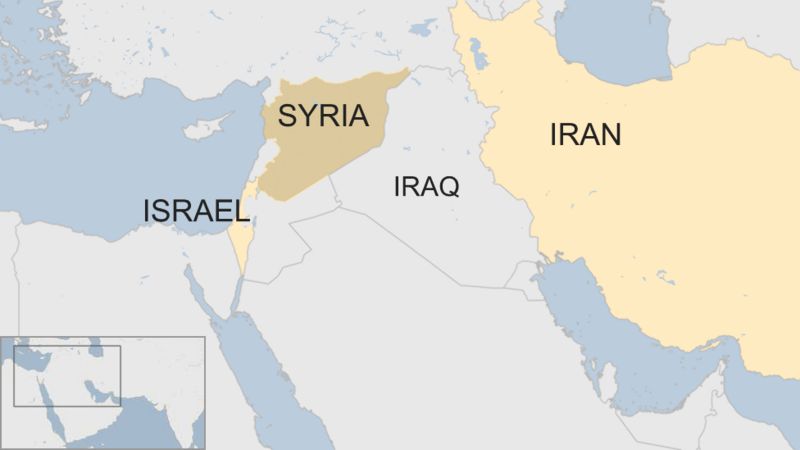Historical Tensions and Conflicts: Israel Iran News

The Israel-Iran conflict is a complex and multifaceted issue with deep historical roots. It is rooted in a combination of religious, ideological, and territorial disputes, intertwined with geopolitical interests and regional power struggles. This conflict has escalated and receded over the decades, leaving a trail of violence, mistrust, and instability in the Middle East.
Historical Background
The conflict’s origins can be traced back to the establishment of the State of Israel in 1948. This event was met with resistance from neighboring Arab states, including Iran, which saw the creation of Israel as a threat to their interests and the Palestinian people. The 1979 Iranian Revolution, which led to the establishment of the Islamic Republic, further intensified the conflict. The new Iranian regime, under the leadership of Ayatollah Ruhollah Khomeini, declared Israel an illegitimate state and a “cancerous tumor” that needed to be eradicated.
Perspectives of Israel and Iran
Israel’s Perspective
Israel views Iran as a major threat to its security, citing Iran’s support for militant groups like Hezbollah and Hamas, its development of ballistic missiles, and its pursuit of nuclear weapons. Israel believes that Iran’s actions are aimed at its destruction and that it must take proactive measures to prevent this from happening.
Iran’s Perspective
Iran, on the other hand, sees Israel as an occupying force in Palestine and a major obstacle to regional stability. Iran believes that Israel’s existence is illegitimate and that it is responsible for the suffering of the Palestinian people. Iran also argues that Israel’s nuclear program poses a threat to the entire region and that its own nuclear program is solely for peaceful purposes.
Role of External Actors, Israel iran news
The Israel-Iran conflict has drawn the attention of major world powers, who have played a significant role in shaping its dynamics.
The United States
The United States has been a staunch ally of Israel since its inception, providing it with significant military and financial aid. The US has also been a major player in the international efforts to curb Iran’s nuclear program, imposing sanctions and taking a tough stance against its nuclear ambitions.
Russia
Russia has traditionally had a close relationship with Iran, supplying it with arms and providing diplomatic support. However, Russia has also expressed concerns about Iran’s nuclear program and has called for a negotiated solution.
The European Union
The European Union has been involved in the diplomatic efforts to resolve the Israel-Iran conflict, particularly in the context of the nuclear issue. The EU has imposed sanctions on Iran but has also expressed its desire for a peaceful resolution.
Nuclear Program and Regional Security

Iran’s nuclear program has been a source of significant concern for regional security and international relations for decades. The program’s potential for developing nuclear weapons has raised fears of an arms race in the Middle East and the possibility of a nuclear conflict.
International Pressure and Sanctions
International pressure and sanctions have been a key element in attempts to curb Iran’s nuclear ambitions. The United Nations Security Council has imposed numerous resolutions on Iran, including restrictions on its nuclear activities and trade. The United States and its allies have also implemented unilateral sanctions targeting Iran’s economy and individuals involved in the nuclear program. These sanctions have significantly impacted Iran’s economy, limiting its access to technology, finance, and trade. The impact of sanctions on Iran’s nuclear program is complex and multifaceted. While they have hindered Iran’s ability to acquire advanced technologies and materials, they have also contributed to economic hardship and social unrest, potentially motivating Iran to pursue its nuclear program more aggressively.
Role of the International Atomic Energy Agency (IAEA)
The International Atomic Energy Agency (IAEA) plays a crucial role in monitoring Iran’s nuclear activities. The IAEA’s mandate is to ensure that nuclear activities are conducted safely and for peaceful purposes. The agency has been monitoring Iran’s nuclear program since the 1970s and has conducted numerous inspections of Iranian nuclear facilities. The IAEA’s reports on Iran’s nuclear program have been instrumental in informing the international community about the program’s progress and potential implications. The IAEA’s role is crucial in verifying Iran’s compliance with the Joint Comprehensive Plan of Action (JCPOA), an agreement reached in 2015 between Iran and world powers aimed at limiting Iran’s nuclear program in exchange for the lifting of sanctions.
Political and Economic Relations

The relationship between Israel and Iran is characterized by deep mistrust and hostility, stemming from a complex history of conflict and ideological differences. Despite the lack of formal diplomatic ties, the two countries have engaged in various forms of indirect interaction, primarily through third parties and international organizations. This interaction is often marked by tensions and confrontations, but also by occasional periods of cooperation, particularly on issues of regional security.
Current State of Relations
The current state of political and economic relations between Israel and Iran is marked by a deep chasm of mistrust and hostility. Diplomatic relations have been severed since 1979, following the Iranian Revolution, and there is no formal communication between the two governments. The two countries have engaged in various forms of indirect interaction, primarily through third parties and international organizations, but these interactions are often fraught with tensions and confrontations.
- Diplomatic Ties: Israel and Iran have no formal diplomatic relations. Both countries maintain a policy of non-recognition of the other.
- Trade: Trade between Israel and Iran is non-existent due to the absence of diplomatic relations and ongoing political tensions.
Key Areas of Cooperation and Conflict
The relationship between Israel and Iran is characterized by a complex interplay of cooperation and conflict. While the two countries are adversaries on many fronts, they have also occasionally cooperated on issues of mutual interest, particularly in the context of regional security.
- Conflict: The primary source of conflict between Israel and Iran is their competing regional ambitions and ideological differences. Israel views Iran as a major threat to its security, particularly due to Iran’s support for militant groups in the region and its nuclear program. Iran, in turn, views Israel as a hostile entity that seeks to undermine its regional influence and destabilize the Middle East.
- Iran’s Support for Militant Groups: Iran is widely believed to provide financial and military support to various militant groups in the region, including Hezbollah in Lebanon, Hamas in Gaza, and Palestinian Islamic Jihad. These groups have carried out attacks against Israel, and Israel has responded with military strikes against Iranian-linked targets in Syria and Lebanon.
- Nuclear Program: Iran’s nuclear program has been a major source of tension between Israel and Iran. Israel has long expressed concern that Iran’s nuclear ambitions could lead to the development of nuclear weapons, which would pose a significant threat to its security. Iran insists that its nuclear program is for peaceful purposes, but Israel and its allies remain skeptical.
- Cooperation: Despite their deep animosity, Israel and Iran have occasionally cooperated on issues of regional security, particularly in the context of the Syrian Civil War.
- Cooperation Against ISIS: During the rise of ISIS in Syria, Israel and Iran were both concerned about the group’s potential to destabilize the region and pose a threat to their own interests. This shared concern led to some degree of tacit cooperation between the two countries, although it was never formalized or publicly acknowledged.
Impact of Regional Developments
Regional developments, such as the Syrian Civil War and the rise of ISIS, have had a significant impact on the Israel-Iran relationship.
- Syrian Civil War: The Syrian Civil War has become a proxy battleground for the Israel-Iran rivalry. Iran has been a major supporter of the Syrian government, while Israel has been concerned about Iran’s growing influence in Syria and its potential to establish a permanent military presence there.
- Rise of ISIS: The rise of ISIS in Syria and Iraq has presented both Israel and Iran with a common threat. Both countries have been concerned about the group’s potential to destabilize the region and pose a threat to their own interests. This shared concern has led to some degree of tacit cooperation between the two countries, although it has been limited and has not led to any formal dialogue.
Israel iran news – You know, the news about Israel and Iran is always kinda intense, right? It’s like a never-ending drama. If you wanna get the lowdown on the whole history of their conflict, check out this article: iran israel.
It’ll give you the full scoop on how their relationship’s been a rollercoaster for ages. Anyway, back to the news, it’s always a wild ride with these two countries!
Israel and Iran, they’re always at each other’s throats, you know? It’s like a never-ending soap opera. But hey, at least we can be thankful for the good ol’ emergency services in Northeast Ohio, like the ones mentioned here.
It’s a reminder that even amidst all the global drama, there are folks out there who are always ready to help. Back to Israel and Iran, who knows what kind of chaos they’ll cook up next, right?
